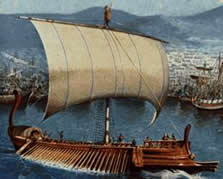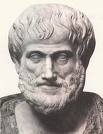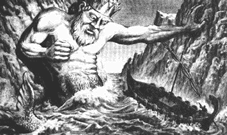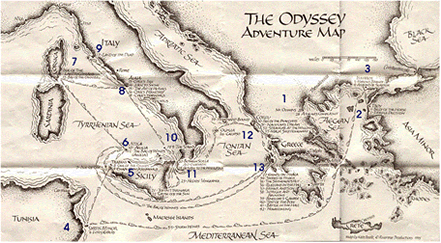 |
"Odyssey" a farmilar English word, meaning, according to Webster, "a series of of adventurous journeys usually marked by many changes of fortune.” The Greek word Odusseai, the form from which the English word is derived, simply means, “the story of Odysseus,” a Greek hero of the Trojan War who took ten years to find his way back from Troy to his home on the island of Ithaca, off the western coast of mainland Greece. Homer’s Odyssey does indeed present us with “adventurous journeys” and "changes of “ fortune,” but it is also an epic tale of a hero’s return, to find at home a situation more dangerous than anything he faced on the plains of Troy or in his wanderings over uncharted seas. |
 |
 |
The Greek Philosopher Aristotle, writing in the fourth century B.C., gives us, in his treatise known as the Poetics, what he considers the essence of the plot. “A certain man has been abroad many years; he is alone, and the god Poseidon keeps a hostile eye on him. At home the situation is that suitors for his wife’s hand are draining his resources and plotting to kill his son.” This is an epic tale of his struggle to get home and in the process, he suffers a storm and a shipwreck, he faces powerful gods, and he confronts mythical creatures.
|
 |
 |
This 12,109 lines of hexameter verse, composed probably in the late eighth century or early in the seventh B.C., by a poet known to the later ages as Homer, for whose life and activities no trustworthy information has come down to us. Essentially, the poem is about 2,700 years old. |
 |





